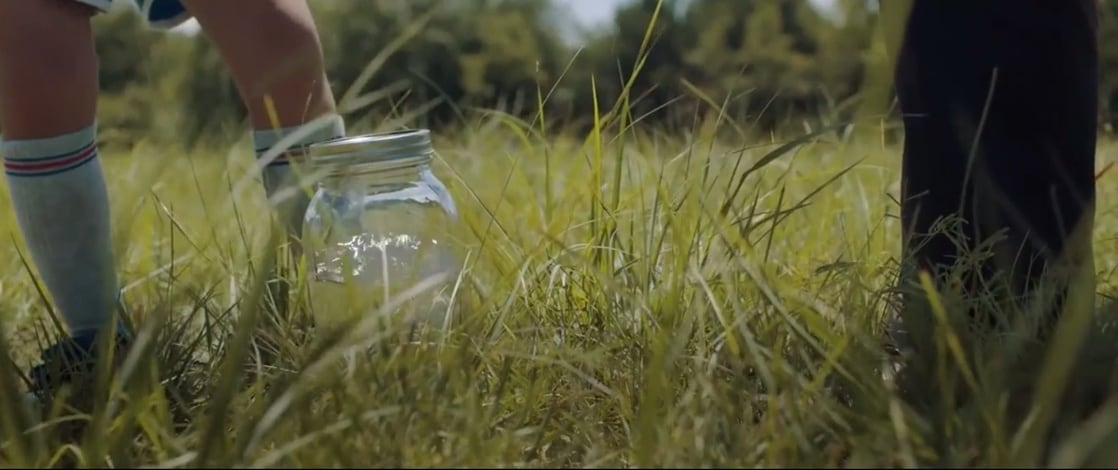Oh, man. In terms of writing about music, I’ve been absolutely out of it over the last year. I’ve started numerous new release reviews—Kid Cudi, Healy, Dominic Fike; Rostam; serpentwithfeet—but the writing always dies in the drafts.
The album that’s finally gotten me to sit down and take the time to verbalize how I feel about it is the Minari soundtrack, composed by Emile Mosseri.

I’d heard a lot about Minari—though A24 really could’ve done a better job of advertising it—mostly through the lens of it being categorized as a foreign language film at the Golden Globes. (Despite being shot by an American director, produced by an American film company, about an American family, in Arkansas.) The characters largely speak Korean throughout the movie, and the Golden Globes have a requirement that 80% of the dialogue be spoken in English. They have, of course, made exceptions to this rule in the past, for Quentin Tarantino’s Inglorious Basterds and Alejandro González Iñárritu’s “Babel.”
But anyway—I finally watched Minari with my family this weekend and loved it. The movie was visually stunning, deceptively simple, heartrending and hopeful at the same time. Worth watching. Something that immediately jumped out to me from the very beginning was the score of the movie—it landed in that perfect sweet spot of brilliance of making you feel so many things, being richly textured and beautiful in its own right, and capturing the atmosphere of the movie perfectly—without ever crossing the line into distraction.

I almost can’t believe that Mosseri composed the whole thing purely from the script, without any footage, because the score matches the visuals of the film so seamlessly that it feels almost chicken and egg. The Minari soundtrack conjures images of a wide open blue sky, meadows and fields and the sun beating on your back, white clouds, drifting your hand against the wind, dirt roads, endless land. Listening to it is what I imagine being baptized might feel like.

A few notable tracks—though really, they’re all worth listening to. They’ll bring you inner peace:
Wind Song
‘Wind Song’ is a manifestation of inner peace, seriously. Actress Han Ye-ri’s voice operates at a soft falsetto that glides like it’s being carried over the sea to you. The plucking of an acoustic guitar is used as the rhythm instrument rather than melody, which occurs in other tracks as well and is really brilliant. A distant, trilling flute sound soars through the entire song. It literally brings to you the feeling of wind rippling through the mountains; the image of leaves rustling because of the movement of the branches. It feels like birds flying. It’s the kind of song that reminds you that no matter how shitty and fucked up the world seems, you can still find peace.

Birdslingers
Featured in Minari’s Trailer, Birdslingers is aptly titled. If Mosseri had made a few different sonic choices, it could almost be the soundtrack of a gunslinging Western. It has the same trilled, high choir vocalizing repeatedly that forms the melody. The dry acoustic strum undergirds the whole song with rising tension, and the drum procession has an almost military quality to it. It feels urgent, like a call to action, or the beginning of an adventure. Like the beginning of a 40-year march through treacherous valleys. But Mosseri gentles it, adds his own twist—the harmonization and trills of the choir never ascends into operatic the way it might in classic Western soundtracks (The Ecstasy of Gold comes to mind)–it stays firmly in the realm of hymn. And about halfway into the song, Mossier trades the Western completely for a gentle piano, light touches of drum—reminding us that we’re not watching a story about pistols at dawn, we’re watching a movie about a family and their dreams and the land which holds those dreams.
Rain Song
This is the track shortlisted for Best Original Song at the Oscars, and perhaps the one that translates best to something you can listen to as a self-contained song. It’s relatively simple, in terms of composition and instrumentals, but it’s not meant to be complicated. It’s like a lullaby. The synthesizer “pulling in and out” in the background.

There are so many tracks on this album that are literally a masterclass in how you layer synths: the glittering harmonies and fluttering piano of Paul’s Antiphony, the hopeful surround sound of Jacob and the Stone, the haunting tragedy and resolution of Oklahoma City. This is vast, expansive work. The soundtrack is at once gospel, symphony, ambient, and stripped-down piano. The way Mosseri is able to translate the natural imagery in the movie into music… it brings you peace. The experience of the whole soundtrack reminds me of these lines from Gibran’s Prophet:
For what is it to die but to stand naked in the wind and to melt into the sun?
And what is it to cease breathing, but to free the breath from its restless tides, that it may rise and expand and seek God unencumbered?